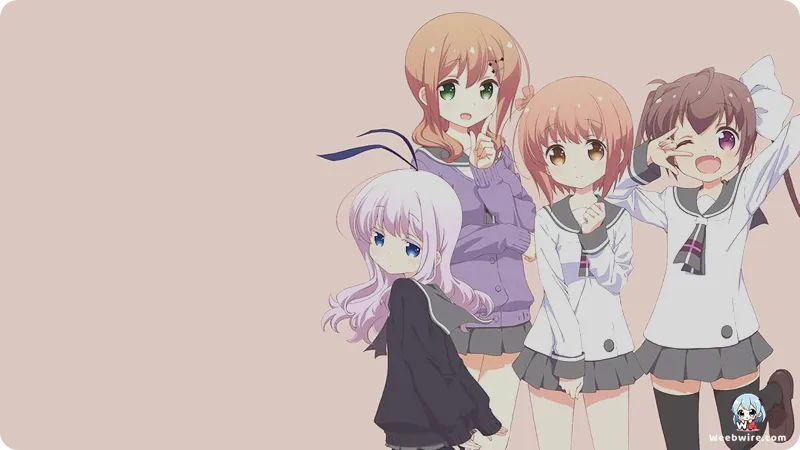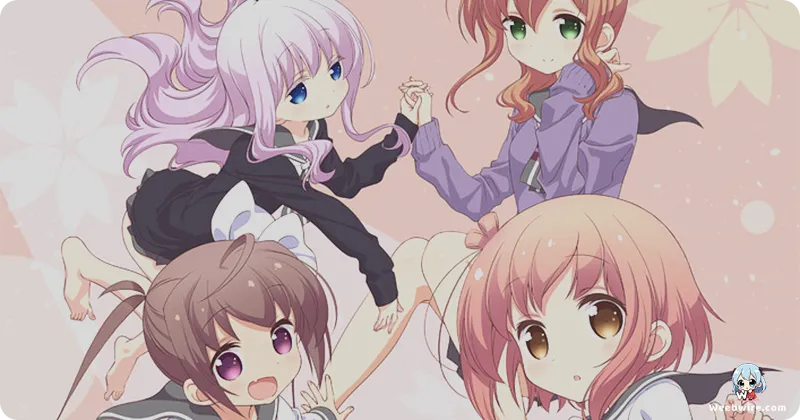CloverWorks' Foundational Debut: How *Slow Start* Transcended the 'Cute Girls' Genre with Hidden Production Significance and Deep Emotional Truths
3 months ago
Share this news:

While often categorized simply as a 'cute girls doing cute things' (CGDCT) entry, the 2018 anime adaptation of Yuiko Tokumi's Slow Start harbors critical historical significance within the modern anime industry, coupled with a remarkably sensitive portrayal of social anxiety. Far more than a standard slice-of-life offering, this series served as a crucial proving ground for one of today's most prominent animation studios.
CloverWorks' Foundational Success
Upon its debut, Slow Start became one of the inaugural solo productions helmed by CloverWorks. Formed in 2018 following its separation from A-1 Pictures, the studio needed a title that could effectively demonstrate its independent capabilities and distinct artistic vision. The delicate character requirements and subtle emotional nuance inherent in the 4-koma source material made Slow Start the perfect test case.
Under the direction of Hiroyuki Hashimoto (renowned for Is the Order a Rabbit?), the production team meticulously embraced the iyashikei (healing) genre. This commitment to visually polished, character-driven narrative was a resounding success, establishing CloverWorks’ reputation and laying the groundwork for future blockbusters like The Promised Neverland and Bocchi the Rock!. Viewing the series through this lens reveals it not just as a charming comfort watch, but as a foundational landmark in contemporary anime history.

The Heart of Hana Ichinose's Struggle
Beyond its production trivia, the heart of Slow Start lies in the deeply relatable internal struggle of protagonist Hana Ichinose. The entire premise hinges on a closely guarded secret: Hana was held back a year after missing her high school entrance exams due to illness. In the competitive environment of the Japanese school system, this delayed enrollment fuels her intense social anxiety and fear of exposure.
The show's title, Slow Start, is a direct nod to her late entry into high school life, but also metaphorically captures the measured, gentle pace at which she learns to manage her past and build confidence. The series tackles this weighty theme with incredible grace, using the supportive dynamics within her friend group—Tamate, Eiko, and Kamuri—and gentle comedy to chip away at her isolation. Instead of relying on dramatic confrontations, the narrative focuses on small, authentic daily victories, offering a realistic depiction of overcoming self-imposed barriers.
Adding depth to the narrative is the unique relationship Hana shares with her cousin, Shinozaki Eiko. Eiko is not only a classmate but also acts as Hana’s landlady, as Hana resides in an apartment owned by Eiko’s family. This setup provides Eiko with a dual role supportive peer and protective guardian creating a secure emotional anchor essential for Hana’s growth. Furthermore, the adaptation brilliantly translates the rapid-fire pacing and visual humor of the 4-koma manga, utilizing frequent scene cuts and a vibrant, soft color palette that enhances the feeling of tranquility. The meticulous attention to detail, from the expressive character designs adapted from Yuiko Tokumi's style to the subtle visual shorthand of character accessories (like Kamuri’s signature hoodie), ensures the show remains visually captivating even during its most tranquil moments. This combination of technical finesse and profound emotional storytelling solidifies Slow Start as an enduring and technically fascinating gem within the slice-of-life genre.